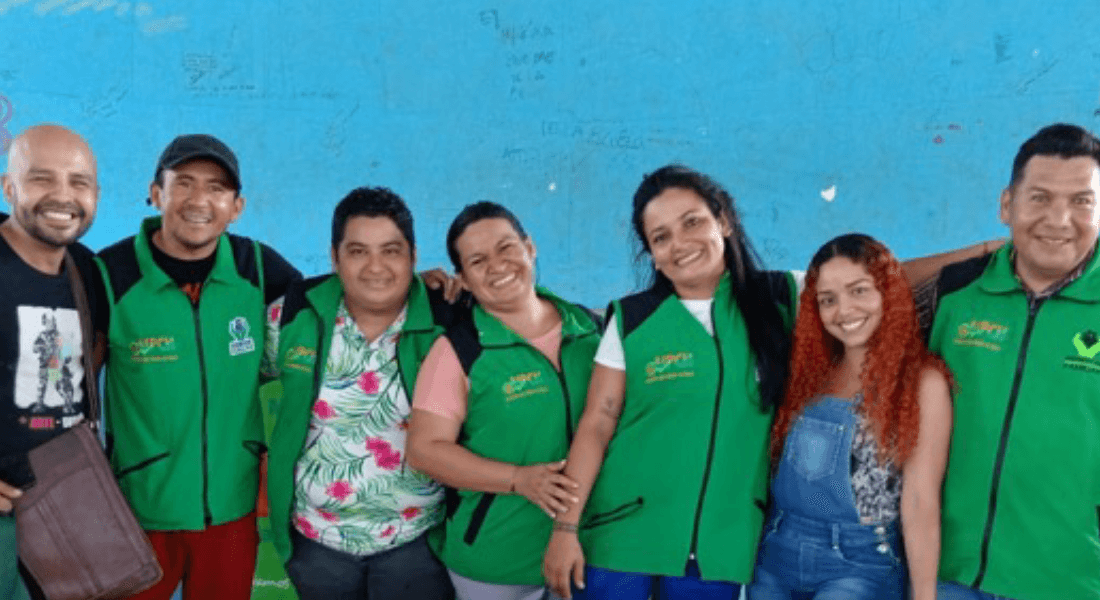Vladimir Ariza-Montañez: Social disease and humanitarian interventions in Colombia
SGH's October Spotlight highlights Vladimir Ariza-Montañez, a PhD student in the Department of Anthropology at the University of Copenhagen. In this Spotlight, Vladimir shares his research on social disease and humanitarian interventions based on his fieldwork on malnutrition in rural and remote areas of Colombia.

Tell us about your research
In Colombia, acute malnutrition has been recognized as such a social disease associated with conditions of poverty, inequalities, and food insecurity. This condition has especially affected communities indigenous and the population who live in rural and dispersed areas.
To address this issue, the Colombian government has supported the program "1.000 Dias para Cambiar el Mundo" (One Thousand Days to Change the World). A malnutrition care and preventive strategy, carried on by a technical team with the ability to mobilize and attend the population in territories with low health capacities, especially children categorized in risk of acute malnutrition and pregnant women with low weight. Global health initiatives that supported the suggestion to concentrate nutrition treatments during the time from conception until the age of two years served as the inspiration for the "1000 Days" program.
This research draws attention to the ways that discourses, measurements and technologies promoted by global health programs for children and pregnant women are applied by local organizations in the context of a humanitarian emergency.
This project is the result of five months of ethnographic research with mothers who participated in the "1000 Dias" program and the technical team in charge of it in Puerto Carreño, a city located just in the border between Colombia and Venezuela; this city has experienced several humanitarian crises in the last ten years due fluxes migratory and displacement by armed groups.
Why is this research important?
Along with other researchers, I believe that my project contributes to a deeper understanding of the challenges that the so-called "dispersed areas" of Colombia face in promoting food security, nutrition, and the human right to food. In addition, it could be an input for an interdisciplinary conversation, for the design of strategies, guidelines and public policies that promote malnutrition care and preventive strategies.
What excites you about your work and your research?
Inspired by recent works in the field of Anthropology of Medicine, I’m quite motivated to analyze how global health interventions -specially “humanitarian interventions”- classify/create people in a complex process that involve global-local dynamics. In this process, knowledge, institutions, policies, rules, humanitarian technologies are assembled in surprising ways (not always voluntary). But also, it is quite interesting to analyze what happened at the local level: how people resist or reimagine those assembles.
Which achievements do you hope to see within your research field 10 years from now?
Considering how recently governments, non-governmental organizations, and international organizations have centered efforts to treat malnutrition as a medical problem with "magic bullets" (single interventions that can "resolve" or "compensate" them faster and cheaper), I hope that my research, along with that of many other scholars, will encourage more creative and holistic ways to attend them. Especially, trying to show different gaps, obstacles, and barriers of the interventions vertically delivered without participation of the community, or that leave the social needs of the population in the background. In the Colombian case, in ten years I dream about a considerable reduction of malnutrition cases not only as a result of the success of programs of this nature, but also as a result of structural changes (racism, poverty, exclusion and social injustice), which are the heart of the matter.
What advice do you have for junior researchers in global health?
At some stages in their academic careers, researchers tend to grow weary of their chosen fields of study. So, for me it is key to maintain your interest day by day. To be open to the surprise and new things, not only through academic conventional sources, but inquiring in alternative resources (literature, music, podcast, casual conversations).
What is your favorite source of global health inspiration and knowledge?
I find it inspiring how some academics handled the COVID-19 outbreak, which occurred recently. How they were creative in terms of methodology, how they focused their vision to depict a world that was becoming more interconnected with simultaneous interactions occurring at the macro, meso, and local levels, and how sensitive they were to various needs, models, and social issues that arose with the epidemics. We must remember the lessons we learned from that. Also, I cannot fail to mention academic scenarios such as the Health and Life Conditions Research Group (HALC) of the Department of Anthropology of KU. To me this has been an inspirative and collaborative scenario where I’ve received friendly feedback of my concerns about my project.
Contact
Vladimir Ariza-Montañez, vam@anthro.ku.dk
PhD Student, Department of Anthropology, University of Copenhagen
